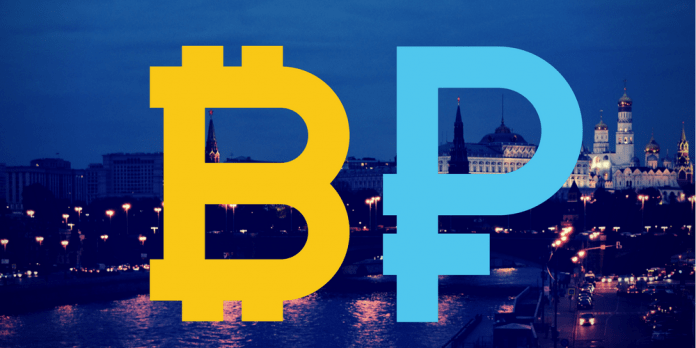On 1st September, local publications including Vedomosti Business Daily reported that the Russian government had officially opened its first criminal case involving bitcoin. Three businessmen were arrested for illegally trading 500 million rubles’ worth of bitcoin, worth just over $9 million.
According to Forbes, more than 300 bank cards and sim cards were used by the three men to trade bitcoin. The authorities investigated the case as a potential money laundering scheme, given the amount of resources that were needed to hide the transactions through multiple bank accounts. Regardless of whether the operation was a money laundering scheme or a legitimate bitcoin exchange, the business is still illegal under current Russian financial regulations.
Despite growing demand towards bitcoin and other popular cryptocurrencies such as Ethereum, the legality of digital currencies in Russia remains unclear. Recently, Anatoly Aksakov, the leader of the State Duma’s financial markets committee, announced that a dedicated task force may be formed in the upcoming weeks to evaluate bitcoin and establish regulatory frameworks for businesses, investors, and users.
A statement from Aksakov, roughly translated by Coindesk, read:
“If we agree on the main approaches in the coming week, I think that by autumn, by the end of the fall session, we will be able to adopt this law in order to provide a legal space for the development of this market.”
Russian lawmakers, including Aksakov, remain optimistic towards bitcoin and blockchain technology, primarily due to the interest from President Vladimir Putin and his advisors. Aksakov’s statement indicated the government’s willingness to facilitate the growth of the bitcoin and blockchain sector by offering a more flexible ecosystem for businesses.
The likelihood of bitcoin being legalized by the Russian government before the end of 2017 is slim. However, in early August, CoinJournal reported that President Putin’s internet advisor Dmitry Marinchev had revealed plans to conduct a $100 million initial coin offering (ICO) for a bitcoin mining project. At the time, Marinchev explained that he hopes to see the Russian bitcoin mining industry surpass the growth rate of China’s, which houses some of the world’s largest mining equipment manufacturers and mining pools including Bitmain, Antpool, F2Pool and BTC.com.
Disclosure of Marinchev’s project to the public was unforeseen, especially because the government has long discussed the potential of declaring bitcoin mining and ICOs illegal within the country. In an interview with RT on 4th September, Presidential Council on the Internet member Ilya Massukh stated that a law prohibiting the mining of bitcoin and cryptocurrencies could soon be introduced.
“Bitcoins are mined with the use of a set of electronic devices, including video cards. Electric networks at blocks of flats are unlikely to stand such consumption; ventilation systems are not able to handle the generated heat, either. This could trigger a fire. Virtually all computer capacities are not Russian, bitcoin itself is not allowed inside the country. Accordingly, the mined bitcoin tokens go to some external exchanges. All that remains inside the country is the waste of electricity. Quite a doubtful efficiency for the Russian economy,” said Massukh.
Banning bitcoin mining centers as a cautionary approach to prevent fire or lack of electricity is completely illogical, given that it is a solution for a non-existent problem. Imposition of such impractical regulations will fail to differentiate Russia from other economies such as Venezuela, which has banned bitcoin mining on the premise that it can be viewed as theft of electricity.
In June of 2015, President Putin appeared on a televised forum hosted by Ria to briefly explain that bitcoin can be used to some account. He noted:
“As an accounting unit, these ‘coins’ or whatever are they called, they can be used, and their adoption becomes wider and wider. As some kind of unit in some account, probably, it’s possible.”
But, since mid 2015, that was all the clarification on the legality of bitcoin the Russian government was willing to offer. The Russian bitcoin community hopes to see a clearer stance from the government on the cryptocurrency market in the near future.














